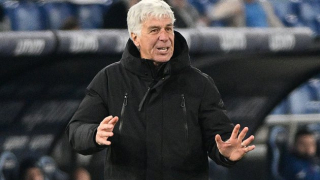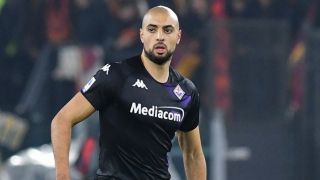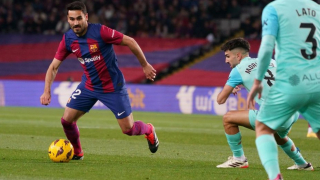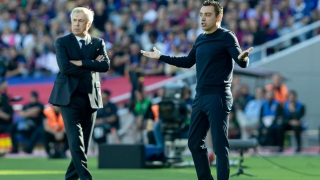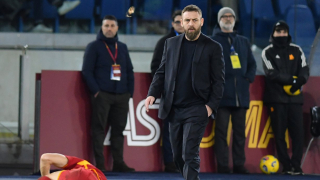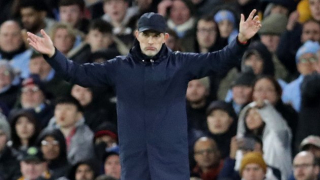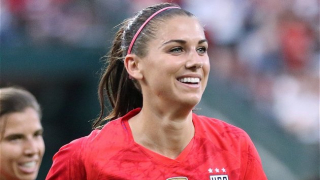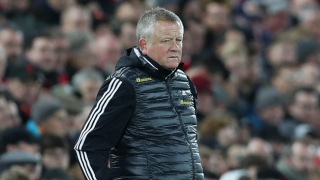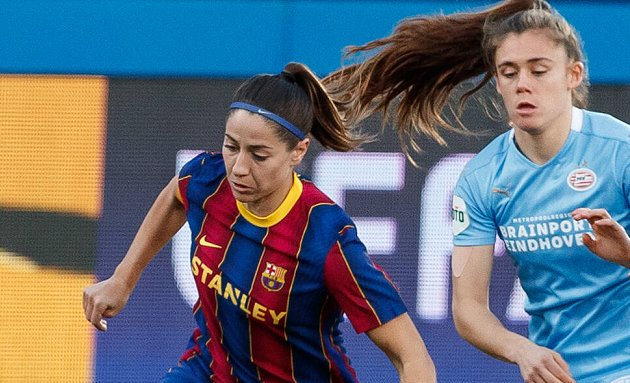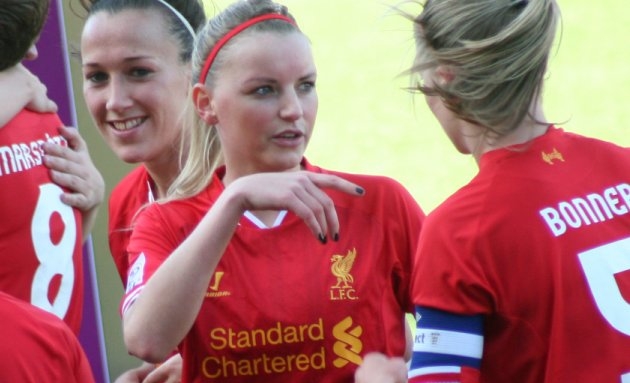This week, TribalFootball.com talked exclusively with Guyana's women's national team head coach Dr. Ivan Joseph, about his plans for developing the women's game at home and throughout the Caribbean. We then review a new FIFA publication entitled: Guide to Club Licensing in Women's Football. One of their examples of club licensing being utilised was by Jordan's FA, for which Amman Club is the reigning AFC women's club champion and we also look briefly at the results from that tournament that was held late last year; part of our continuing focus on the growth of confederation club tournaments for women, leading up to—we hope—a FIFA Women's Club Championship within the next few years.
Interview with Dr. Ivan Joseph, Guyana's Women's National Team Head Coach
We have documented this year how well Guyana did in the CONCACAF W Championship qualifiers, just missing out on a final's spot this summer as they drew host side Trinidad and Tobago 2-2 in the deciding group game in April. We spoke with the team's assistant coach, who is a full-time assistant at Grambling University, last month (see: The Week in Women's Football: Interview with Guyana coach Sherry; 1League Canada; Challenge Cup update - Tribal Football). The side's head coach, Dr. Ivan Joseph, who is the vice-President of Student Affairs at Wilfrid Laurier University in Ontario, Canada (see more in: The Week in Women's Football: Women's Africa Cup of Nations results; CONCACAF qualifiers reach halfway point - Tribal Football) provided some insightful thoughts on the barriers to growth for women's football in Guyana and his plan to become less reliant on Guyanese diaspora from abroad. Joseph moved to Canada from Guyana at the age of five and he has heavily recruited from the diaspora in North America, primarily in Canada, but also from the U.K. and U.S. Nineteen of Guyana's 23-member squad in April were born in North America or Britain, while the starting lineup in their draw with Nicaragua (0-0) in Guyana had eight Canadian-born players and three from the United States.
I asked about building from the base that he has now from their fine run in the CONCACAF W Championship qualifiers and Coach Dr. Ivan Joseph clearly laid out a roadmap for developing countries, like Guyana and other West Indies Caribbean nations, to raise the standard of women's football at the grassroots and national team level, "When we look at it, one of the challenges that we have is to maintain our momentum as a national team program. We fell short in T&T and when I look from 2018-22, they [Trinidad and Tobago] participated in no less than 30 national team games [a total of 31—19 in 2018 with two other friendlies cancelled, 4 in 2019, 0 in 2020, 4 in 2021 and 4 in 2022 to date]—we have had two [since 2018, when they had 6 during a Women's World Cup Qualifying year, 0 in 2019, 0 in 2020, 2 in 2021] which was one weekend where we played Puerto Rico twice [losing 6-1 and 2-1 on October 20 and 23, respectively of 2021 away]. Even at that, it was scheduled in such haste that 80% of our team was not available for that. When you don't have a team available to compete and don't have opportunities to train and compete, and you find yourself playing in a game having to protect the lead in front of a hostile crowd [as they did in their final group game in Tobago], and you are unable to do so because you lack the experience; we have to find them more opportunities if we want to close the gap and do something differently."
Note: Joseph pointed out that T&T held only 9 games from 2019-2021 due to a combination of COVID and administrative challenges, which have beset the federation for some years now as we have documented in the past.
Dr. Joseph has a vision to not only build the game in Guyana but throughout the region, explaining that, "There are a couple of things we have to recognize—the role of women in Caribbean society is much different than in the role in the west. In Guyana, it is not unusual for there to be nothing for women to do past the age of 12 in terms of cooperative activities, leadership development, education and post-secondary goals and attainment. If you're not married, then [people ask] 'what are you doing and what is your role?' That is a clear and common path and is not unique to Guyana. In the male-dominated world that we live in…we're seeing women are getting scraps of budget opportunities, playing opportunities, leftover coaches. How many times are you seeing full blown women's leagues in the Caribbean? Zero, but you are seeing men's leagues [including Haiti, Jamaica, T&T and even a ten team Elite League in Guyana], full-time head coaches on the men's side; all of us [women's national team coaches] are volunteer coaches put together with tree gum band aids and scotch tape; it is not fair. We have to elevate the performance of the teams in order to shine a light on this."
Guyana women's national team coach Dr. Ivan Joseph. Photo courtesy Guyana Football Federation.
Dr. Joseph said that there was a plan to product a Netflix documentary on the plight of women's football in the Caribbean and how women are being shortchanged in not getting the same opportunities as men. Following the Lady Jaguars to the CONCACAF Finals this summer would have been a nice tie-off for the film but he felt that perhaps they can do the same for the first Women's Gold Cup/Olympic Games qualifiers—the next major event for the Confederation.
Guyana has attracted attention for their heavy reliance on their diaspora recently, with 19 of their 23-player roster for April's qualification games being primarily from Canada but also the U.S. and England. He explained, "It's a careful balance that you try to put out. As much as you want to grow the game in Guyana and inspire the country, if you are not doing it with players that truly look like them, and grew up in the same areas of the communities that they are a part of, then we are nothing more than hired guns. They won't identify with me—even though I was born in Guyana—as someone who grew up there." He admitted that the locals being able to see players who grew up in their communities from the grass roots levels is vital in the future, "We don't have enough of those women on the team (only four in April). I've always said that I've done my job if I can make sure that that balance is more for the domestic-based players than for the diaspora, even thought that is what we need right now to get to a critical mass where we can do well enough to elevate, [in order] to get investment and funding."
Dr. Joseph had a vivid example of the results on the field when using his diaspora versus more of a home-based squad, "Two years ago, we took a team that was comprised of 95% diaspora that held Mexico 0-0 in the U-20's for 78 minutes [Feb 27, 2020 in the CONCACAF group stage] and then gave up three goals, [two of which came in the 87th and one in injury time]." Just earlier this year, with 5 players from Guyana and one playing in Trinidad and the rest from Canada, they lost 5-0 to Mexico on February 28, 2022, surrendering three first half goals. Joseph said that they decided to use more of a Guyana-based squad in the regional U-17 tournament in April of this year, where they lost to Mexico 15-0 in the round of 16 on April 30. He emphasized, "We need those players [the diaspora] to create the competition level and give us the opportunity to attract the resources—when your team gets this far, people pay attention; they invest more in you—there are more opportunities." He is also seeing more sponsorship activity for the team after their success in the CONCACAF W Championship at the full national team level, "which is starting to trickle through."
Dr. Joseph discussed what he would like to see immediately take place to continue to build the national team squad in the immediate future, "A couple things need to happen. Trinidad and Tobago and Jamaica will all play in games/training camp this summer. We need to do it too. Anytime they are playing and we're sleeping, they are getting better. Let's play the teams that placed third in qualifiers—call it 'here's our chance cup.' When can we play again? We can't match Canada and USA in their frequency of play. There is another level, 10-15 teams above us, that we have to match their frequency of training and playing."
"Secondly, for athleticism and physicality, it is probably better [for the local Guyanese players] than the majority of my Canadians and Americans but the technical aspect, the tactical piece, where to run, where to run, they don't have enough games, or opportunities; that is the biggest drawback. Players in Guyana that have the athletic ability and [are] on the verge of being technically and tactical, can we do a summer study program? Let's do a home stay—play in our club league for 3 months. The club system is much better system now in North America. It will take 5-7 years to get that club system up in Georgetown. Let's do it right now in Canada." Dr. Joseph was focused on the 16-20 age group. He saw huge benefits in playing time for his local players, "If you do that for the next 2-3 years in Canada, they [will] play 3-4 nights a week. I've got enough critical mass here outside of Toronto that I could put together an all-Guyanese club team."
Haiti did a similar "summer abroad program" when Shek Borkowski was coach in 2007-2012, taking many of the local players to Goshen, Indiana for the summer, where they played local colleges, touring national teams and in WPSL league games as FC Indiana. Shek focused on bringing younger players in, as there was pressure on them at home once they turned 20 to find a job or get married. Fast forward a decade and Haiti has an excellent chance to qualify for the 2023 WWC from the CONCACAF Finals this summer or through the Intercontinental Playoffs. Haiti has developed a pipeline of sending players to France to play professionally, and now can draw on that experienced core.
Joseph's final point was on the local coaching scene, "Finally, I [my staff] need to develop the level of coaches that we want there. It's not sophisticated yet. If we elevate the level of coaching that will make a huge difference."
Guyana is certainly pointing the way in terms of a path to rapidly developing a competitive women's national team program, starting with their diaspora while focusing on local coaching, player development and leagues to lessen that reliance and build support for the players in the nation. Led by Dr. Ivan Joseph and his team, Guyana has a visionary group of leaders who are also committed to building a trail for other Caribbean nations to follow.
FIFA Guide to Club Licensing in Women's Football—A Review
FIFA recently published its first ever Guide to Club Licensing in Women's Football, which is a practical tool to support member associations in implementing club licensing for their women's competitions and drive further professionalization and development of the women's game at the club level. Soleen Al-Zou'bi (Head of Women's Football, Jordan FA) spoke about the importance of club licensing for the women's game. "The Club Licensing programme was an excellent tool for supporting elite women's football in Jordan and raising the level of competition. With FIFA's assistance, we worked with the clubs to develop the league and assist them in producing higher standards and better players. And this was demonstrated when Amman Club was crowned AFC Women's Club Championship 2021 Champion.[see more below on this Asian Club Competition]."
Soleen Al-Zou'bi added, "In addition to the JFA's finance, administration, sporting, legal and infrastructure experts, we have hired an expert in safeguarding, with the objective of this expert being not only to verify that each club is properly implementing a safeguarding programme, but to also assist the clubs in understanding the importance of safeguarding and how they can maximise their efforts in this important area."
This guide complements other recent FIFA publications focused on the women's game, including: Setting the Pace: FIFA Benchmarking Report Women's Football and the FIFA's Women's Development Programme, which demonstrate FIFA's commitment to raising the standards of women's football clubs and leagues.
FIFA President Gianni Infantino said in the report's introduction (page 2): "Ahead of the first-ever 32-team FIFA Women's World Cup in Australia and New Zealand in 2023, through our dedicated Women's Football Division and thanks to record levels of investment, FIFA has recently launched various projects aimed at strengthening the current competitions, increasing participation, raising awareness and impact, implementing new and specific development programmes, and propelling the professionalisation of the women's game forward, both on and off the pitch. This has led to steady progress and, thanks to the efforts at all levels—whether by confederations, member associations, leagues, clubs, players, or the many other stakeholders of the game—the future of women's football is certainly bright and strong, and we will all have a part to play as we continue along this path towards ever-greater heights.
It is in this spirit that we have created this comprehensive, yet practical guide to contribute towards the further development and professionalisation of the women's game at club level. Incorporating the club licensing system as a development tool has been an important step in the process of raising the standards of clubs and leagues all around the world and boosting the development of the women's game. Clubs are the foundation of our game and, by creating specific tools and programmes to support the unique women's football environment, we aim to enhance the player pathways for women and girls all over the world. This guide offers a framework to establish solid, customised foundations in the club landscape for long-term growth and stability."
"Our primary audience for this guide is our MAs (FIFA Member Associations) who will benefit from many recommendations to help them throughout the process of setting up and/or implementing a proper club licensing system for women's football. Naturally, this guide also allows all football stakeholders, including confederations, leagues, clubs, players, coaches, fans, partners and media outlets, to learn about club licensing in women's football in depth and the steps that are expected from competition organisers to put this important tool in place (page 5)."
When properly implemented, club licensing can (page 7):
- Bring MAs closer to their clubs
- Promote and improve good governance at each club
- Increase trust in and the integrity of clubs
- Enhance the integrity of competitions
- Increase coaching qualifications
- Increase clubs' financial stability
- Increase the understanding of club ownership groups
- Provide a practical tool to improve conditions for players
- Raise the levels of professionalism in club management
- Increase the number of youth development teams and players
- Improve the stadiums, office spaces and training facilities of clubs
- Promote financial transparency in clubs
- Encourage investment in the game
- Assist in risk and crisis management
Key Steps and Implementation of the Licensing System are as follows (page 12):
Part 1 Set up the System
- Establish a budget to set up the system
- Hire or appoint a club licensing manager (CLM)
- Organize an internal kick-off workshop
- Hire and/or appoint club licensing criteria experts
- Understand the reality of the clubs and determine the scope of application
- Explore club licensing criteria
- Confirm the legal basis and establish and approve club licensing regulations
- Establish an online club licensing platform
- Establish a first instance body (FIB) and an appeals body (AB)
- Organize a club licensing workshop with the clubs
Part 2 Implement the System
- Establish and approve a budget to implement the system
- Organize a club licensing launch meeting with the clubs
- Start the core process and support the clubs
- Review the club licensing applications and visit the clubs.
- Organize an FIB meeting to award or deny licenses
- Implement the appeals process
- Create a benchmarking report and a roadmap for each of the clubs
- Organize workshops with the clubs and review the system with all stakeholders
The main responsibilities of a CLM [Club Licensing Manager] include (but are not limited to) the following (page 19):
• Establishing all elements of the club licensing system—regulations, supporting documents, processes, timelines, guides and manuals
• Serving as the primary point of contact between the MA and clubs (and between FIFA and the confederation), with regular communication
• Serving as a point of contact for the club licensing decision-making bodies
• Collecting, organising and reviewing documents submitted by clubs
• Preparing applications for review by decision-making bodies
• Formally communicating licensing decisions
• Monitoring clubs throughout the season to ensure continued compliance with criteria
• Organising workshops, courses and meetings to facilitate knowledge-sharing, and visiting the clubs
• Analysing data and developing reports
• Managing the department's budget
• Administering the online club licensing platform
The key attributes of a CLM include (page 19):
• Advanced project management skills
• Advanced organisational and analytical skills
• Time management skills
• Excellent communicator
• Proficient in technology
• Strong attention to detail
• Strong presentation skills
• Strong stakeholder management skills
• Team player
• Event management skills
• High standards of integrity
• Familiarity with club football
• Resilience/stress resistance
• Problem-solving skill
The club licensing regulations are a comprehensive document that outlines all of the elements of the system. While each MA can create their own regulations, the following sections are considered "standard" and should be incorporated (page 47):
1. Objectives
2. Scope of application
3. Legal basis of system
4. Licensor & licensing administration
5. Decision-making bodies
6. Procedural rules
7. Catalogue of sanctions
8. License applicant
9. The license
10. Core process
11. Equal treatment & confidentiality
12. Compliance audits
13. Exceptions
14. Club licensing criteria for regional competitions
15. Club licensing criteria for domestic competitions
16. Disciplinary procedures
17. Matters not provided for
18. Language/ diverging texts
19. Adoption & enforcement
20. Extraordinary application
21. Annexes (if necessary)
The online club licensing platform must, as a minimum, have the following functionalities (page 52):
• Enable the CLM to create required fields and deadlines for clubs
• Enter information via various form fields
• Upload documents
• Indicate the date and time of document submission
• Receive notifications that a document has been accepted or rejected
• Enable the CLM to view, approve or reject a submission
• Enable a club licensing expert to view documents
• Enable FIB members to view a club's application
• Enable AB members to view a club's appeal
• Store the data entered by the clubs on a yearly basis
• Issue reports
Examples of workshops for clubs based on club licensing criteria include (but are not limited to) the following (page 98):
- Club budget—A workshop for clubs with a financial expert who can guide clubs in creating a proper club budget
- Media officer—A workshop for clubs' media officers to improve the way in which each club conducts its media operations
- Marketing plan—A workshop for clubs with a marketing expert to assist clubs with creating or improving their marketing plans
- Youth development plan—A workshop for clubs with a youth development expert to assist with creating or improving a youth development plan
- Stadium management and security—A workshop for clubs with stadium management and security experts to assist clubs in creating or improving in the areas of pitch maintenance, floodlights, stands and stadium security plans
FIFA summarizes the report on page 104 when it says that it, "hopes that this guide will assist MAs around the world to properly implement club licensing in women's football. FIFA would like to reiterate the following:
1 — It is paramount that, when a new club licensing system is being set up, the licensor has an excellent understanding of the reality of all clubs that will be part of the system.
2 — Creating criteria without having first understood the specific reality of football clubs can be detrimental to the success of club licensing.
3 — MAs should truly work hand in hand with their experts in women's football, club licensing, competitions, development, legal, finance and communications to ensure that the system takes all viewpoints into consideration
4 — MAs should support their clubs as they embark upon the club licensing journey and make sure that they are available to assist the clubs and provide them with the tools they need to succeed.
5 — Developing an efficient and modern system that is tailor-made for the reality of clubs will provide the best opportunity for women's club football to grow and improve.
6 — The right people should be appointed to each role, with relevant qualifications and characteristics: excellent time management skills, commitment to achieving the system's goals and objectives, and dedication to consistently communicating with the relevant stakeholders.
7 — It is important to produce benchmarking reports and conduct club workshops to facilitate knowledge-sharing, to review the system and to make adjustments and improvements for future cycles.
Again, FIFA is showing its commitment and leadership by issuing these special guides for women's soccer. The particular report also contains an important table (page 42) which summarizes the club licensing criteria for the four confederations that have implemented them: the AFC, CAF, CONMEBOL and UEFA, for the AFC Women's Champions League, CAF Women's Champions League, CONMEBOL Women's Libertadores Cup and UEFA Women's Champions League, respectively. Though this report is more for federation officials and doesn't include as many interesting statistics on the women's game, which can be found in the FIFA Benchmarking Report which we reviewed last summer (The Week in Women's Football: Review of FIFA survey; Canada, USWNT rosters for Tokyo - Tribal Football), this FIFA report is certainly an important and comprehensive work and will help to accelerate the growth of the women's game.
The AFC Women's Club Championship 2021 (technically the Pilot Tournament (West)) was held in November of last year in Jordan with four league champion teams: Amman Club of Jordan, Gokulam Kerala of India, Shahrdari Sirjan FC of Iran and Bunyodkor of Uzbekistan. An East Zone companion tournament with teams from Thailand, Myanmar, Taiwan and Vietnam was unable to be held due to COVID. Amman and Shahrdari Sirjan finished tied at the top of the table with 6 points each from two wins and one loss, but Amman won the last group game against the Iranian side 2-1 and took the title on head-to head competition. Bunyodkor defeated Amman 1-0 in the second game and finished in a tie for third with Kerala, but had an inferior goal differential to the Indian side (-2 vs 0).
Goals by captain Maysa Jbarah (32—now with Ankara BB Fomget in Turkey after playing in France, Lebanon, UAE and in Jordan; she has 5 goals in 11 games for her club thus far this season) and Shahnaz Jebreen, who plays at home at Amman FC and is the head of the Jordan Football Association's female Grassroots Center in Amman, powered Jordan to the continental title. Afsaneh Chatrenoor (24—with Shahrdari Sirjan in Iran's Kowsar Women Football League) scored the only goal for the Iranian champions very late in second half injury time.
Amman Club FC of Jordan (left) and Shahrdari Sirjan FC of Iran (right) players contest a ball in the ultimate deciding match of the AFC Women's Club Championship 2021 last November, with Amman winning the regional title with a 2-1 win. Photo courtesy of the AFC.
The Asian women's continental club championship was first held in 2019 as
Japan's Nippon TV Beleza finished in first place ahead of China PR's Jiangsu Suning Ladies FC, host club Incheon Hyundai Steel Red Angels and Australia's Melbourne Victory in Yongin, Korea Republic.
Tim Grainey is a contributor to Tribal Football. His latest book Beyond Bend it Like Beckham on the global game of women's football. Get yours copy today.
Follow Tim on Twitter: @TimGrainey

